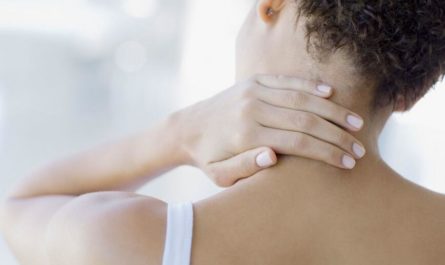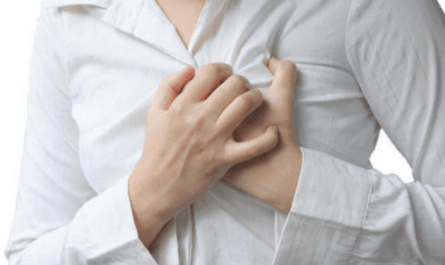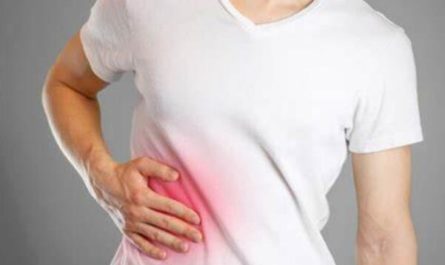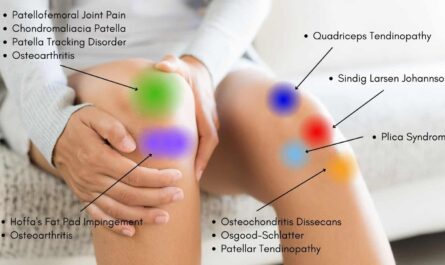Stomach pain after eating can be a bothersome and uncomfortable experience. It can range from mild discomfort to severe pain. Understanding the underlying causes is crucial for effective management. While occasional stomach pain is common and usually not a cause for concern, persistent or severe pain may indicate an underlying condition that requires attention. This article will explain the possible causes of stomach pain and how to treat it.
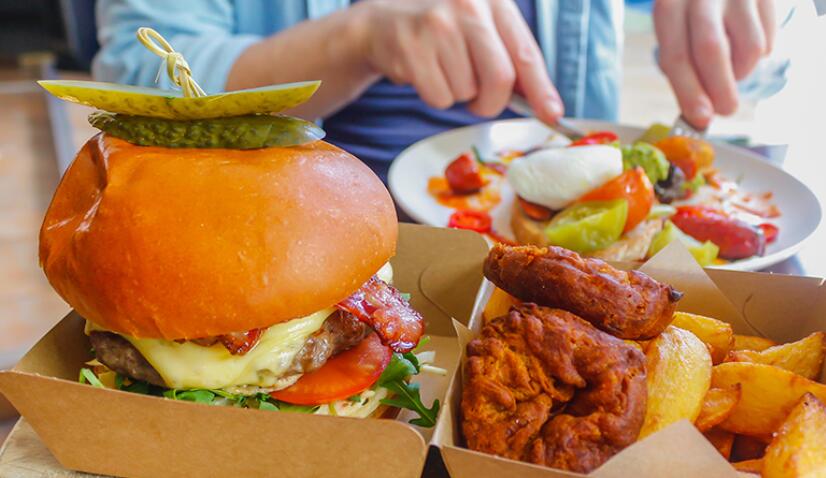
10 Common Causes of Stomach Pain after Eating
Stomach pain after eating can be a bothersome and uncomfortable experience. It can range from mild discomfort to severe pain, and understanding the underlying causes is crucial for effective management.
1. Gastritis
Gastritis, which refers to stomach lining inflammation, is a frequent cause of stomach pain after eating. It can occur due to various factors, including excessive alcohol consumption, prolonged use of nonsteroidal anti-inflammatory drugs (NSAIDs), or autoimmune disorders.
Common symptoms of gastritis include abdominal pain, bloating, nausea, vomiting, and a feeling of fullness.
2. Peptic Ulcers
Peptic ulcers are open sores that develop on the stomach lining or the small intestine’s upper part.
These ulcers can be caused by long-term use of NSAIDs, infection with H. pylori bacteria, or overproduction of stomach acid. When food comes into contact with these ulcers, it can lead to a sharp, burning pain in the stomach area, particularly after eating.
3. Gastroesophageal Reflux Disease (GERD)
GERD is a chronic condition characterized by the backward flow of stomach acid into the esophagus.
This condition can cause irritation and inflammation of the esophagus, resulting in heartburn and stomach pain. The pain is often more pronounced after meals, especially if spicy or acidic foods have been consumed.
4. Food Intolerances and Sensitivities
Certain individuals may experience stomach pain after eating due to food intolerances or sensitivities.
Lactose intolerance, gluten intolerance, and fructose malabsorption are common culprits. When these individuals consume foods containing substances they are intolerant or sensitive to, it can lead to symptoms such as bloating, abdominal cramps, and diarrhea.
5. Irritable Bowel Syndrome (IBS)
IBS is a chronic disorder that affects the large intestine and is characterized by various gastrointestinal symptoms, including stomach pain after eating.
The exact cause of IBS is unknown, but it is believed to involve a combination of genetic, environmental, and psychological factors. The pain in IBS can range from mild to severe and may be accompanied by changes in bowel habits.
6. Gallstones
Gallstones are hardened deposits that form in the gallbladder. When these stones obstruct the bile ducts, they can cause intense pain in the upper abdomen, commonly known as a gallbladder attack. The pain may be triggered or worsened by eating fatty or greasy foods.
7. Pancreatitis
Pancreatitis refers to inflammation of the pancreas, an organ responsible for producing digestive enzymes. When the pancreas becomes inflamed, it can lead to severe abdominal pain that worsens after eating. Other symptoms of pancreatitis may include nausea, vomiting, fever, and rapid pulse.
8. Appendicitis
Appendicitis is the inflammation of the appendix, a small pouch in the lower right abdomen. Although the classic symptom of appendicitis is a pain in the lower right abdomen, it can also cause stomach pain after eating.
This pain may start around the belly button and gradually shift to the lower right abdomen.
9. Gastroparesis
Gastroparesis is when the stomach muscles do not function properly, resulting in delayed stomach emptying. This can cause various symptoms, including stomach pain after eating, bloating, nausea, and early satiety.
10. Inflammatory Bowel Disease (IBD)
Inflammatory Bowel Disease (IBD) encompasses conditions such as Crohn’s disease and ulcerative colitis, which involve chronic inflammation of the gastrointestinal tract. Stomach pain after eating can be a symptom of IBD, diarrhea, rectal bleeding, and weight loss.
Treating stomach pain after eating
1. Dietary Modifications
Dietary modifications play a crucial role in managing stomach pain after eating. By identifying and avoiding trigger foods, you can reduce the likelihood of experiencing discomfort.
Certain foods like spicy or greasy dishes, carbonated beverages, and high-fat meals can irritate the stomach lining, leading to pain.
Dietary Modifications
- Identify trigger foods: Keep a food diary and note down any foods that seem to cause stomach pain after eating.
- Avoid trigger foods: Once you have identified the triggers, avoid them in your diet.
- Opt for a balanced diet: Focus on consuming a well-balanced diet of lean proteins, fruits, vegetables, and fiber-rich foods.
2. Over-the-Counter Medications
Over-the-counter (OTC) medications can temporarily relieve stomach pain after eating. Antacids like Tums or Rolaids neutralize excess stomach acid, alleviating heartburn and indigestion.
Over-the-Counter Medications
- Consult a pharmacist: Talk to a pharmacist about over-the-counter medications for relieving stomach pain after eating.
- Follow the instructions: Read and follow the instructions on the medication packaging carefully to ensure safe and effective use.
3. Ginger
Ginger has long been a natural remedy for digestive issues, including stomach pain. It contains compounds that can help relax the gastrointestinal tract muscles, reducing inflammation and easing stomach discomfort.
You can consume ginger in various forms, such as ginger tea, capsules, or adding fresh ginger to your meals. Incorporating ginger into your routine may provide relief from stomach pain after eating.
- Fresh ginger: Incorporate fresh ginger into your meals by grating or finely chopping it and adding it to stir-fries, soups, or smoothies.
- Ginger tea: Brew a cup of ginger tea by steeping sliced ginger in hot water for 10-15 minutes. Drink it after meals to soothe stomach pain.
4. Peppermint

Peppermint is another natural remedy known for its ability to soothe stomach pain and ease digestion. It works by relaxing the muscles of the gastrointestinal tract, which can help relieve spasms and reduce discomfort.
Sip a cup of peppermint tea or chew on peppermint leaves after meals to reap its digestive benefits. However, individuals with gastroesophageal reflux disease (GERD) should use caution, as peppermint may sometimes exacerbate symptoms.
- Peppermint tea: Brew a cup of peppermint tea using dried peppermint leaves. Sip on it slowly after meals to alleviate stomach discomfort.
- Peppermint oil: Dilute a few drops of peppermint oil in a carrier oil and massage it gently onto your stomach for relief.
5. Probiotics
Probiotics are beneficial bacteria that promote a healthy gut microbiome. They can help restore the natural balance of bacteria in the digestive system and improve overall gut health.
Consuming probiotic-rich foods like yogurt, sauerkraut, and kefir or taking a high-quality probiotic supplement may alleviate stomach pain after eating by supporting proper digestion and reducing inflammation.
- Probiotic-rich foods: Incorporate probiotic-rich foods into your diet, such as yogurt, kefir, sauerkraut, kimchi, or kombucha.
- Probiotic supplements: Consult with a healthcare professional to find a high-quality probiotic supplement that suits your needs.
6. Chamomile
Chamomile tea has been used for centuries to calm digestive issues and alleviate stomach discomfort. It possesses anti-inflammatory properties that can help reduce pain and relax the gastrointestinal tract muscles.
Brew a cup of chamomile tea by steeping chamomile flowers in hot water. Drink it slowly after meals for its soothing effects on the stomach.
7. Apple Cider Vinegar

Although it may seem counterintuitive, apple cider vinegar can help alleviate stomach pain after eating. It works by improving digestion and reducing acid reflux symptoms.
Chamomile tea: Brew a cup of chamomile tea by steeping chamomile flowers in hot water. Drink it slowly after meals for its soothing effects on the stomach.
However, it’s important to use caution and consult a healthcare professional, as apple cider vinegar may not suit everyone, especially those with underlying digestive conditions.
8. Heating Pad
Applying a heating pad to your stomach can temporarily relieve stomach pain. The gentle heat helps relax the muscles and may reduce cramping and discomfort.
- Choose a heating pad: Select one with adjustable temperature settings to ensure comfort and safety.
- Apply the heating pad: Place the heating pad on your stomach for 15-20 minutes at a time, using a low to medium heat setting.
Ensure the heating pad is set to a comfortable temperature, and use it for short periods to avoid burns or skin irritation.
9. Stress Management
Stress and anxiety can contribute to digestive issues and exacerbate stomach pain. Some techniques, or hobbies, and activities you enjoy can help reduce stress levels and improve overall digestive health.
- Deep breathing exercises: Practice deep breathing exercises to help calm your mind and relax your body.
- Meditation: Set aside a few minutes each day for meditation to reduce stress and promote overall well-being.
- Engage in hobbies: Engage in activities you enjoy, such as reading, listening to music, or spending time outdoors, to help alleviate stress.
10. Medical Consultation
If stomach pain after eating persists or worsens despite trying home remedies, it’s important to seek medical attention.
A healthcare professional can conduct a thorough evaluation, identify the underlying cause of your symptoms, and recommend appropriate treatment options.
It’s crucial not to ignore persistent or severe stomach pain, as it may indicate a more serious condition that requires medical intervention.
How to prevent stomach pain after eating?
To help prevent stomach pain after eating, you can consider the following measures:
- Eat smaller, more frequent meals: Instead of having large meals, try eating smaller portions throughout the day. This can help ease the digestive process and prevent overloading your stomach.
- Eat slowly and chew thoroughly: Taking your time to eat and thoroughly chewing your food aids digestion and reduces the strain on your stomach.
- Identify and avoid trigger foods: Keep track of foods that tend to cause discomfort or stomach pain for you personally. Common culprits include spicy foods, fatty or greasy foods, acidic foods, and certain allergens.
- Maintain a healthy diet: Incorporate a balanced diet rich in fruits, vegetables, whole grains, and lean proteins. This can promote proper digestion and provide essential nutrients for overall digestive health.
- Stay hydrated: Drinking adequate water helps digestion and prevents constipation, which can contribute to stomach pain. Aim to drink plenty of fluids throughout the day.
- Avoid lying down immediately after eating: Allow time for your food to digest before lying down or going to bed. This helps prevent acid reflux and indigestion.
- Manage stress: Stress and anxiety can impact digestion and contribute to stomach pain. Engage in stress-reducing activities such as exercise, meditation, deep breathing, or pursuing hobbies to help alleviate stress.
- Identify and manage underlying conditions: If you frequently experience stomach pain after eating, it’s advisable to consult a healthcare professional.
FAQs
1. Is it normal to experience stomach pain after eating spicy foods?
It is common to experience stomach pain after consuming spicy foods. Spicy foods can irritate the stomach lining, leading to discomfort. If the pain is mild and resolves, it is not a cause for concern. However, if the pain is severe or persistent, it’s advisable to seek medical advice.
2. Can stomach pain after eating be a symptom of a serious condition?
In some cases, stomach pain after eating can be a symptom of a serious condition such as gastritis, peptic ulcers, gallstones, or pancreatitis.
If you experience severe or persistent pain, along with other concerning symptoms like blood in the stool, unexplained weight loss, or difficulty swallowing, it’s important to seek medical attention promptly.
3. When should I consult a healthcare professional?
It is advisable to consult a healthcare professional if you experience frequent or severe stomach pain after eating if the pain is accompanied by other concerning symptoms, if it significantly impacts your daily life, or if home remedies do not provide relief.


